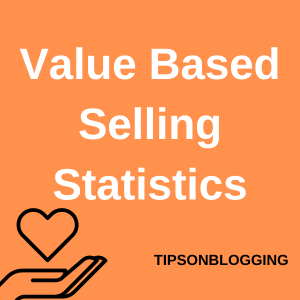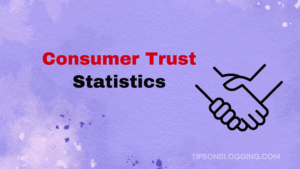Are you looking for some interesting value based selling statistics?
Then you’re in the right place. I’ve done all the hard work for you and thoroughly researched, vetted and categorized 21 value based selling statistics for your pleasure.
Without wasting time, let’s quickly jump to it.
Note: All sources and value based selling reports mentioned are linked at the bottom
Key Value Based Selling Statistics to Know in 2025:
- Organizations who adopt value-based selling strategies see a 20% increase in sales performance compared to those using traditional methods.
- Getting value right doubles win rates and grows existing accounts by up to 5x.
- Only 7% of top-performing sales reps pitch their offer. 19% of non-top performers pitch their offering.
- 6 out of 10 customers consider blog posts valuable in the early stage of their buyer’s journey, but the content has to be purely educational, 96% think that content will be better without sales messages.
- 91% of buyers report that a seller’s focus on the value they can deliver is the #1 most important factor in their purchasing decision
General Value Based Selling Statistics
- About 50% of deals are lost to “no-decision”.
- 81% of top-performing sales organizations agree their main focus is on driving maximum value for buyers, compared to just 61% of the rest.
- 87% of high-growth companies employ a value-based sales approach, compared to just 45% of negative-growth companies.
The Power of Value Based Selling Statistics
- Sales organizations who emphasize value retain more of their most product sellers with a turnover rate of 27%, compared to 39% that aren’t value-focused.
- Value-driving sales organizations get a higher average win rate of 52% compared to non-value driven organizations at 45%
- 90% of value-driving sales organizations grow revenue year to year compared to just 72% that are not value-driven.
Influence on Purchases Through Value Based Selling Statistics
- 68% of customers are likely to spend more money with a brand who understands their unique buyer profile.
- 73% of customers do not want companies to just pitch them a product but understand their unique needs and expectations.
- On average, 4 out of 10 B2B purchases attempted end in no-decision.
- 55% of buyers reported that the length of their buying journey has increased either somewhat or significantly to the tune of 6 to 9 months
- Only 10% of buyers report sales reps to be value-focused, with most still using the traditional, “one-size-fits-all” product pitch approach (Forrester Consulting
Brands’ Adoption Rate of Value Based Selling Statistics
- Around 82% of sales reps are now acting as valuable consultants, assisting buyers in solving complex problems and addressing specific needs.
- 100% of value-driving sales organizations focus on driving maximum value for their customers to 59% of non-value-driving sales organizations). They’re also 2x very likely to agree their pricing strategy allows them to capture maximum prices in line with the value they provide.
- 100% of value-driven sales organizations’ leaders agree their sales process is customer-focused and maps to their buyers’ buying processes. Only 38% of non-value driving sales organizations claim this is true about their process
- 88% of value-driving sales organizations’ company leaders prioritize sales force effectiveness, compared to 54% of other organizations who do.
Brand Consideration Through Value Based Selling Statistics
- 92% of buyers like to hear a value proposition earlier in the sales cycle
- 75% of buyers expect interactions to be value based
What is in Store for Value-Based Selling in 2025?
Data and stats prove that you need to really consider incorporating value in your sales strategy if you want to close more or else you risk losing customers because they could not arrive at a buying decision.
You can start with purely educational content on your website via blog posts to educate potential customers and build a relationship.
You also want to focus less on pitching your offer and more on trying to understand the customer’s challenges, questions, etc. In summary, you have to act like an advisor and not a salesman. It’s no wonder only 7% of top performers pitch their offering compared to a huge 19% of non top performers.
Customers like it when you propose value first and most importantly, earlier in the interaction. Don’t keep it salesy but value based and you will close more sales.
If you are looking for more statistics then take a look at our statistics posts:
- Consumer Trust Statistics
- Customer Lifetime Value Statistics
- Nostalgia Marketing Statistics
- Relationship Marketing Statistics
- Humor in Marketing Statistics
- Location Based Marketing Statistics
- AI Agents Statistics
- Ad Fatigue Statistics
- AI Misuse Statistics
- Product Placement Statistics
- Deepseek Statistics
Sources:
I got my sources from the following pages:
- RAIN Group: Value-Based Selling: Benefits and Strategies
- Sales Insight Lab: Sales Statistics | Amazing Data from New Research, 2023
- Demand Gen Report: State Of Sales Acceleration: Orgs Focused On Engaging Prospects On Their Own Terms & Embracing The Changing Buyer’s Journey, 2023
- PRNewswire: Four Out of Ten B2B Purchase Attempts End in ‘No Decision,’ Study Finds
- Salesforce: State of the Connected Customer report.
- Mediafly: B2B Buyers Go Digital: Are You Adding Value or Creating Friction?
- Value Selling Associates: 87% of High-growth Sales Organizations Take a Value-based Approach to Sales, According to New Research, 2021
- Gartner: Help Your Buyers Realize the Value They Can’t — or Won’t — Measure to Drive Account Growth, 2022
- HBR: Stop Losing Sales to Customer Indecision
- DGR: Content Preferences Survey Report, 2019
- Spekit: The Ultimate Guide to Value-Based Selling
- Khoros: Getting to know your customers

Hello, I’m Prosper Noah, a digital marketer with more than 8 years of experience. My ultimate goal on this website is to use the power of online marketing to help businesses get more visibility and reach more customers.

